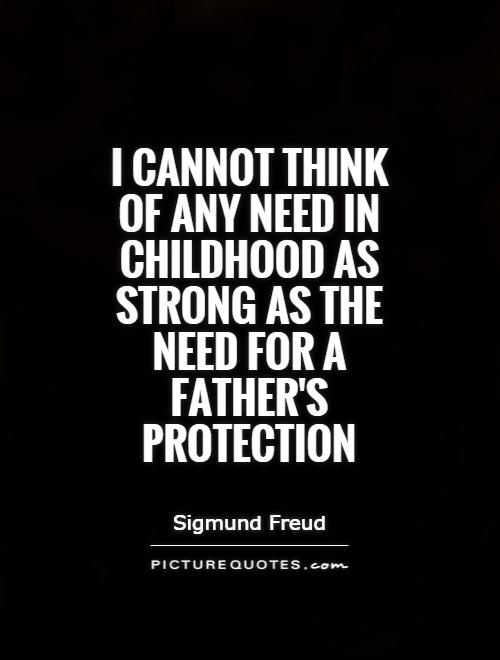I cannot think of any need in childhood as strong as the need for a father's protection

I cannot think of any need in childhood as strong as the need for a father's protection
Sigmund Freud, the renowned psychoanalyst, is well-known for his theories on the development of the human psyche, particularly in childhood. One of Freud's most famous concepts is the Oedipus complex, which suggests that children have a strong desire for their opposite-sex parent and view their same-sex parent as a rival. In this context, the need for a father's protection in childhood can be seen as a crucial aspect of a child's development.Freud believed that the relationship between a child and their father plays a significant role in shaping the child's personality and behavior. The father figure is often seen as a source of protection, guidance, and authority in a child's life. In Freud's view, the father's presence is essential for the child to develop a sense of security and confidence in the world.
The need for a father's protection in childhood can be understood through Freud's theory of the ego, which is responsible for mediating between the demands of the id (instinctual drives) and the superego (internalized moral standards). The father figure serves as a model for the child's superego, providing a sense of right and wrong and helping the child navigate the complexities of the social world.
Freud also believed that the father's protection is crucial for the child's development of a healthy sense of self-esteem and self-worth. A father who is present, supportive, and nurturing can help the child feel valued and loved, which in turn contributes to the child's overall well-being and mental health.












 Friendship Quotes
Friendship Quotes Love Quotes
Love Quotes Life Quotes
Life Quotes Funny Quotes
Funny Quotes Motivational Quotes
Motivational Quotes Inspirational Quotes
Inspirational Quotes